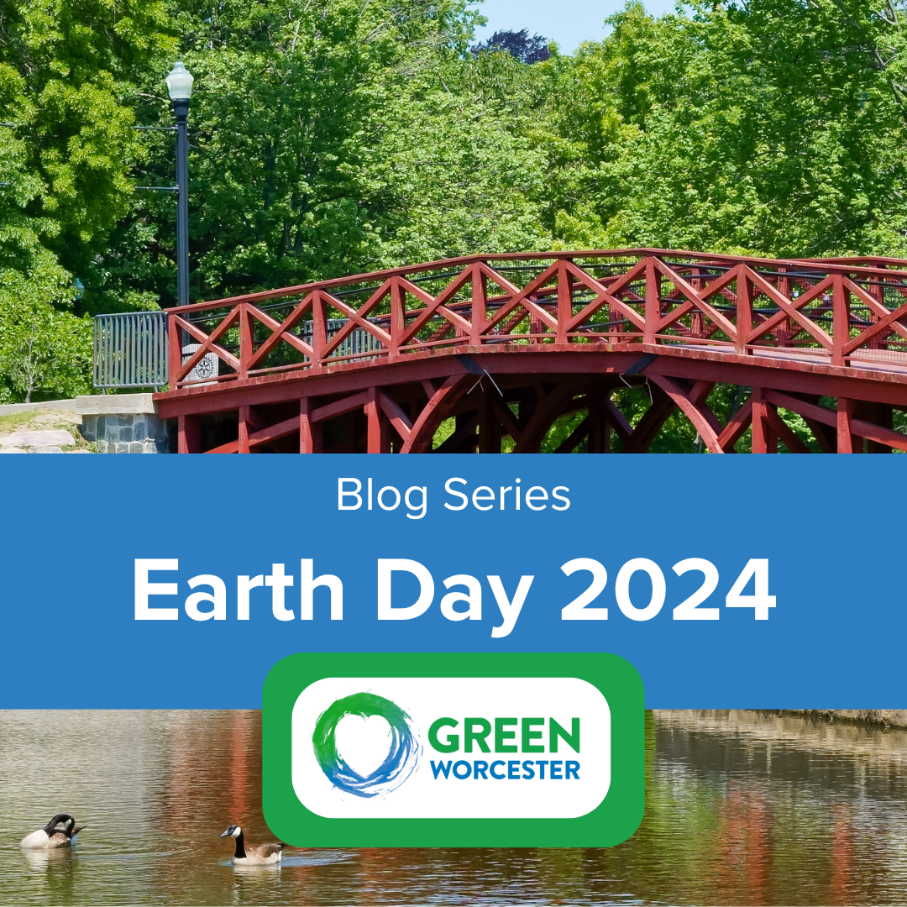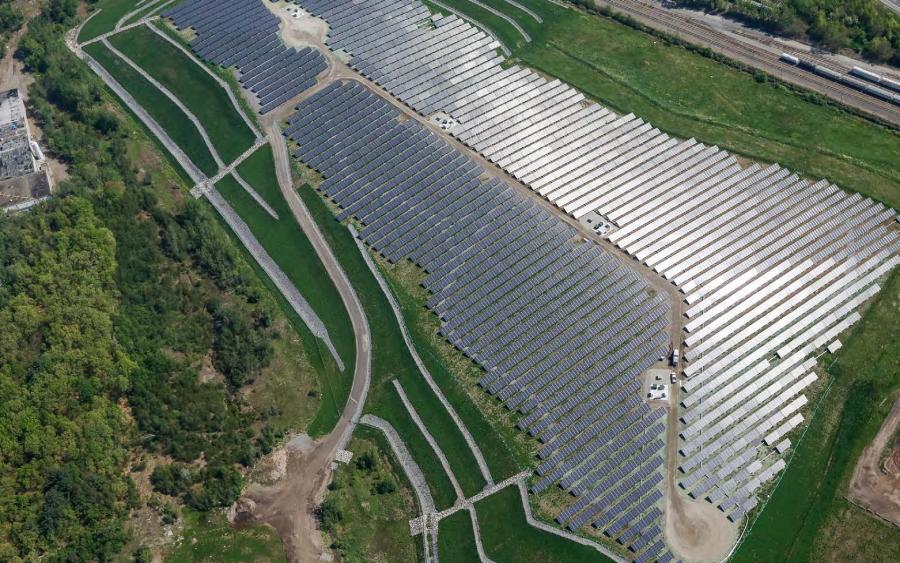Today, we’re honoring Earth Day by appreciating its history and celebrating the City of Worcester’s achievements in climate action. Read to learn more about how the City is making strides in clean energy, pollution reduction, environmental protection, and more.
The History of Earth Day
Earth Day originated from a public outcry against our planet's mistreatment. Senator Gaylord Nelson of Wisconsin initiated the idea after witnessing the devastation caused by the 1969 oil spill in Santa Barbara, California. This event sparked a nationwide movement to raise awareness about environmental concerns. The first Earth Day took place in 1970, with millions of Americans participating in rallies, marches, and educational events. This led to the creation of the Environmental Protection Agency (EPA) and the passage of key environmental legislation, including the Clean Air Act, Clean Water Act, and Endangered Species Act.
The City’s Accomplishments
In the past decade, the city has significantly lowered its greenhouse gas emissions, installed more than a dozen solar projects to reduce our reliance on fossil fuels, and founded the Lakes and Ponds Program to make sure our city’s waterbodies stay safe now and in the future.
Slashing municipal greenhouse gas emissions
Since 2009, we've managed to slash total municipal emissions by 18% through energy efficiency projects, renewable energy installations, electrification, and more, and we continue to charge forward.
Expanding municipal solar installations
Over the last decade, the City has aggressively installed solar on its facilities, including 12 schools, a water filtration plant, the senior center, and the closed landfill on Greenwood Street. Last year alone, municipal solar systems produced more than 11 million kWhs of clean energy. This is equivalent to about 10% of our electricity use in municipal buildings and the amount of electricity used by over 1,000 homes in a year! (EPA Green Power Calculator).
Protecting our watersheds and engaging in the community
The Worcester Lakes & Ponds team facilitates research on our water bodies, manages cyanobacteria monitoring of our waterbodies, and engages the community in recreational and educational opportunities. In 2023, the City completed the construction of an alum dosing station on Indian Lake. The alum dosing station reduces the available food for harmful cyanobacteria blooms. The station is only the second of its kind in the state! It is yet another innovative approach Worcester is using to protect our waterways.
To learn more about our sustainability accomplishments, check out our History of Climate Action, our timeline and our First Annual Progress Report for our Green Worcester Plan.
Celebrate Earth Day 2024 by planting trees!
Join us in planting the City’s first Miyawaki Forest on Saturday, April 27 from 10 am – 12 pm at the McGrath Municipal Parking Lot next to the Worcester Public Library.
These forests are densely planted, multi-canopied, small (1,000 – 10,000 square feet) urban forests that are proving to be an excellent solution to many sustainability and resilience problems in dense cities with little space to spare – improving air quality and health and reducing urban heat and flooding.
Can’t make it to the in-person events? Try these at-home climate actions instead:
- Check your household carbon footprint with the EPA Carbon Footprint Calculator
- Choose 100% renewable energy sources through the Green Worcester ElectriCITY Municipal Aggregation Program
- Explore Mass Save rebates and incentives for residential renewable energy
- Sign up for the Worcester Cyanobacteria Monitoring Collaborative
Previous Post
Home Heating Tips for Owners
Next Post
Four Considerations Before Going Solar



